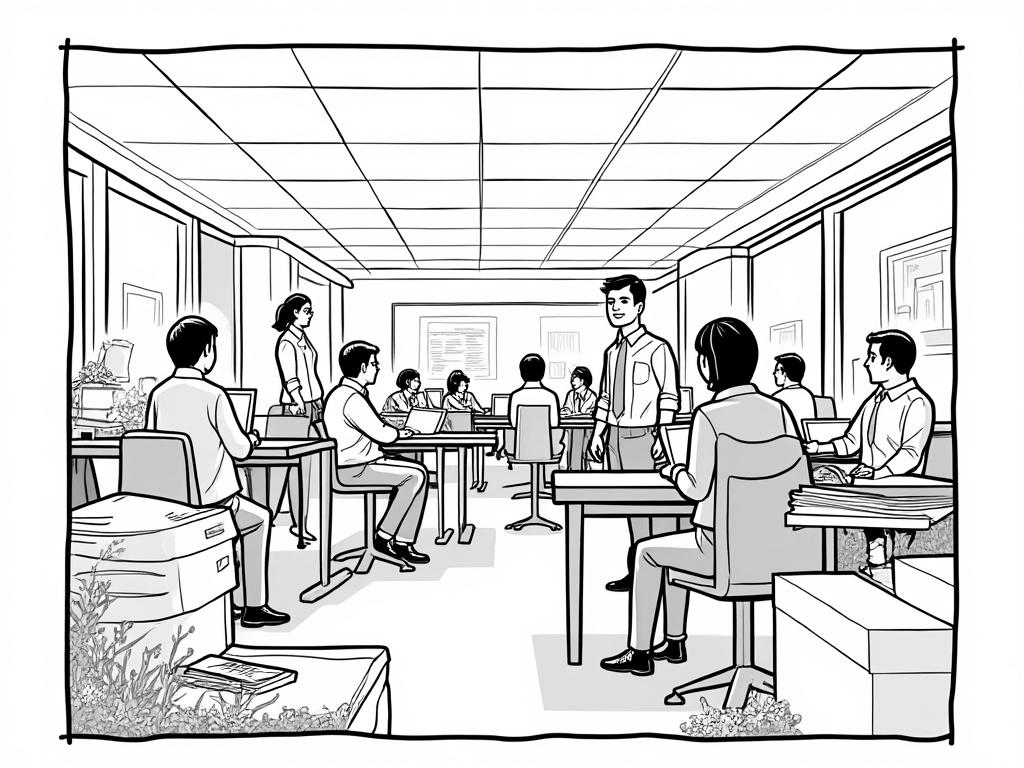
Greece GDP from Mining: Natural Resources and Industrial Development
Reading time: 12 minutes
Table of Contents
- Mining’s Role in Greece’s Economic Landscape
- Key Natural Resources Driving GDP Growth
- Industrial Development and Mining Integration
- Navigating Environmental and Economic Challenges
- Investment Opportunities and Regional Development
- Strategic Pathways for Mining Sector Growth
- Frequently Asked Questions
Mining’s Role in Greece’s Economic Landscape
Ever wondered how a country known primarily for tourism and shipping generates substantial revenue from beneath its Mediterranean soil? Greece’s mining sector contributes approximately €2.1 billion annually to the national GDP, representing about 1.2% of the total economic output. While this might seem modest compared to mining giants like Australia or Chile, Greece’s strategic mineral wealth plays a crucial role in industrial development and regional employment.
Here’s the straight talk: Greece’s mining potential extends far beyond what most international investors realize. The country sits on significant deposits of bauxite, lignite, marble, and precious metals that have shaped both ancient civilizations and modern industrial capabilities.
Economic Impact Overview
The mining sector directly employs over 25,000 people across Greece, with indirect employment reaching approximately 75,000 positions. These jobs span from extraction operations to processing facilities, transportation, and specialized services. The multiplier effect creates substantial economic ripples throughout local communities, particularly in regions like Western Macedonia and the Peloponnese.
Quick Scenario: Imagine you’re evaluating Greece’s economic diversification strategy. What role does mining play beyond raw GDP numbers? The sector provides crucial foreign exchange earnings, supports rural development, and creates high-skilled employment opportunities in regions that might otherwise struggle economically.
Key Natural Resources Driving GDP Growth
Bauxite: Greece’s Aluminum Foundation
Greece ranks among the top 10 global bauxite producers, with annual production exceeding 2.3 million tons. The Parnassos-Ghiona deposit alone contains an estimated 650 million tons of high-quality bauxite, making it one of Europe’s largest reserves. This red ore, primarily used for aluminum production, generates approximately €450 million in annual export revenue.
The bauxite mining operation in Central Greece employs over 3,500 workers directly, with processing facilities operated by Mytilineos creating an integrated value chain. The company’s alumina refinery in Agios Nikolaos processes roughly 800,000 tons annually, demonstrating successful vertical integration.
Lignite and Energy Security
Despite global shifts toward renewable energy, Greece’s lignite deposits continue contributing significantly to energy independence. The country possesses approximately 4.5 billion tons of proven lignite reserves, concentrated in the Ptolemais basin of Western Macedonia.
Greece’s Mineral Production Contribution to GDP (2023)
Marble and Construction Materials
Greek marble has adorned monuments for millennia, and today it represents a sophisticated export industry worth €295 million annually. The Pentelic marble quarries near Athens continue operating after 2,500 years, while modern facilities in Thasos and Drama produce high-quality building stone for international markets.
The marble industry faces unique challenges balancing heritage preservation with economic development. Archaeological constraints limit expansion in historically significant areas, creating opportunities for innovative extraction techniques and premium product positioning.
Industrial Development and Mining Integration
Value-Added Processing Facilities
Greece’s mining sector increasingly focuses on downstream processing rather than raw material export. The Mytilineos aluminum complex exemplifies this strategy, transforming bauxite through alumina refining to aluminum smelting, creating significantly higher value products.
Practical Tip: Modern mining operations in Greece emphasize technological integration and environmental compliance. Companies investing in advanced processing equipment typically achieve 15-20% higher profit margins compared to basic extraction operations.
Regional Industrial Clusters
The Ptolemais-Kozani region in Western Macedonia represents Greece’s most concentrated mining-industrial cluster. Beyond power generation, the area hosts cement production, chemical processing, and specialized manufacturing facilities that utilize locally extracted raw materials.
| Mining Region | Primary Resources | Annual Production Value | Employment | Development Potential |
|---|---|---|---|---|
| Central Greece | Bauxite, Nickel | €520 Million | 8,200 jobs | High |
| Western Macedonia | Lignite, Minerals | €380 Million | 6,800 jobs | Moderate |
| Northern Greece | Gold, Marble | €290 Million | 4,500 jobs | Very High |
| Aegean Islands | Pumice, Marble | €95 Million | 1,800 jobs | Moderate |
| Peloponnese | Industrial Minerals | €145 Million | 2,900 jobs | High |
Navigating Environmental and Economic Challenges
Environmental Compliance and Sustainability
Greece’s mining sector faces increasing pressure to balance economic development with environmental protection. The European Union’s Green Deal requires significant adjustments to traditional extraction practices, particularly in lignite mining operations.
Well, here’s the reality: Successful mining companies in Greece now invest 12-15% of their operational budgets in environmental compliance and restoration activities. This isn’t just regulatory compliance—it’s becoming a competitive advantage for companies seeking international partnerships and financing.
Transitioning from Lignite Dependency
The planned phase-out of lignite-fired power plants by 2030 presents both challenges and opportunities. Western Macedonia, heavily dependent on lignite mining, is developing alternative economic strategies including renewable energy infrastructure and advanced manufacturing.
The European Union’s Just Transition Fund allocated €1.65 billion to support Greece’s coal region transformation, creating opportunities for mining companies to diversify into green technology sectors while maintaining employment levels.
Investment Opportunities and Regional Development
Gold Mining Renaissance
The Skouries gold-copper project in Chalkidiki represents one of Europe’s most significant mining developments. With proven reserves exceeding 3.7 million ounces of gold equivalent, the project demonstrates Greece’s potential for high-value mineral extraction.
Hellas Gold, a subsidiary of Eldorado Gold, invested over €2 billion in developing integrated mining and processing facilities. The operation employs approximately 2,000 people directly and supports thousands of indirect jobs through local suppliers and services.
Industrial Minerals Expansion
Greece’s industrial minerals sector offers substantial growth potential, particularly in specialized applications. Bentonite production from Milos island serves pharmaceutical and environmental applications, while perlite extraction supports construction and horticultural markets globally.
Pro Tip: Investors considering Greece’s mining sector should focus on operations with established environmental permits and strong community relationships. Projects that demonstrate clear social and environmental benefits typically achieve faster regulatory approval and local support.
The Peloponnese region, known for its diverse mineral deposits and strategic location, presents particularly attractive opportunities for mining-related investments. The area’s proximity to major ports and established infrastructure makes it ideal for export-oriented operations. Those interested in the region’s development potential might also consider exploring property for sale in peloponnese as the mining sector’s growth creates increased demand for residential and commercial real estate.
Technology Integration and Innovation
Modern Greek mining operations increasingly adopt digital technologies for improved efficiency and environmental monitoring. Automated processing systems, drone-based surveying, and real-time environmental monitoring create competitive advantages while reducing operational costs.
The Public Power Corporation’s lignite operations implemented advanced monitoring systems that reduced water consumption by 25% and improved air quality metrics significantly. These technological investments demonstrate how traditional industries can modernize while maintaining economic viability.
Strategic Pathways for Mining Sector Growth
Integration with Renewable Energy
Greece’s mining sector is uniquely positioned to support the country’s renewable energy transition. Former lignite mining areas offer ideal conditions for solar installations, while industrial minerals support wind turbine manufacturing and grid infrastructure development.
The transition strategy includes developing Greece as a regional hub for critical minerals processing, particularly rare earth elements essential for renewable energy technologies. This approach leverages existing mining expertise while positioning the sector for future growth markets.
Export Market Development
Greek mining products increasingly target high-value international markets. Marble exports focus on luxury construction projects, while industrial minerals serve specialized manufacturing applications. The sector’s export value reached €890 million in 2023, representing 18% growth from previous years.
Strategic partnerships with international companies provide technology transfer and market access opportunities. Joint ventures in processing and marketing create added value while maintaining Greek operational control and employment benefits.
Frequently Asked Questions
How significant is mining to Greece’s overall economic development?
Mining contributes approximately 1.2% directly to Greece’s GDP, but its economic impact extends far beyond this figure. The sector provides high-paying jobs in rural areas, supports substantial export earnings, and creates multiplier effects throughout local economies. Including indirect impacts, mining-related activities contribute an estimated 2.8% to national economic output while supporting over 75,000 jobs across various sectors.
What are the main environmental challenges facing Greek mining operations?
Greek mining faces several environmental challenges including water management, air quality control, and landscape restoration. The lignite phase-out requires extensive site rehabilitation, while precious metals extraction must minimize ecological impact. However, modern operations demonstrate that environmental compliance and profitability can coexist through advanced technologies and comprehensive management systems. Companies investing 12-15% of budgets in environmental measures typically achieve better long-term financial performance.
Which mining sectors offer the best investment opportunities in Greece?
Gold and precious metals mining present the highest value opportunities, particularly projects with existing permits and infrastructure. Industrial minerals offer steady returns with lower capital requirements, while renewable energy support minerals represent emerging growth sectors. The key success factors include strong environmental compliance records, established community relationships, and access to export infrastructure. Investors should prioritize operations that align with EU sustainability requirements and Greece’s economic transition strategy.
Your Strategic Mining Investment Roadmap
Ready to transform Greece’s mining potential into strategic opportunity? Here’s your practical action plan for navigating this sector successfully:
Immediate Steps (Next 3 Months):
- Conduct thorough due diligence on environmental permits and community relations for target projects
- Establish relationships with local authorities and mining industry associations
- Evaluate infrastructure access and export logistics for potential operations
Medium-term Strategy (6-18 Months):
- Develop partnerships with established Greek mining companies or international joint ventures
- Secure financing that incorporates EU sustainability criteria and Just Transition Fund opportunities
- Implement technology systems that demonstrate clear environmental and efficiency benefits
Long-term Positioning (2-5 Years):
- Integrate operations with Greece’s renewable energy transition and critical minerals strategy
- Establish value-added processing capabilities to maximize domestic economic impact
- Build sustainable community partnerships that support long-term operational success
The mining sector’s evolution reflects broader economic transformation across Greece. Companies that successfully balance traditional extraction expertise with modern sustainability requirements will capture the greatest value as the country positions itself as a critical minerals hub for Europe’s green transition.
What role will your organization play in shaping Greece’s mining future while contributing to sustainable economic development? The opportunities are substantial, but they require strategic thinking, community engagement, and commitment to environmental excellence that benefits both investors and Greek society.

Article reviewed by Amelie Dufour, Co-Living Space Innovator | Urban Millennial Housing Solutions, on June 1, 2025
